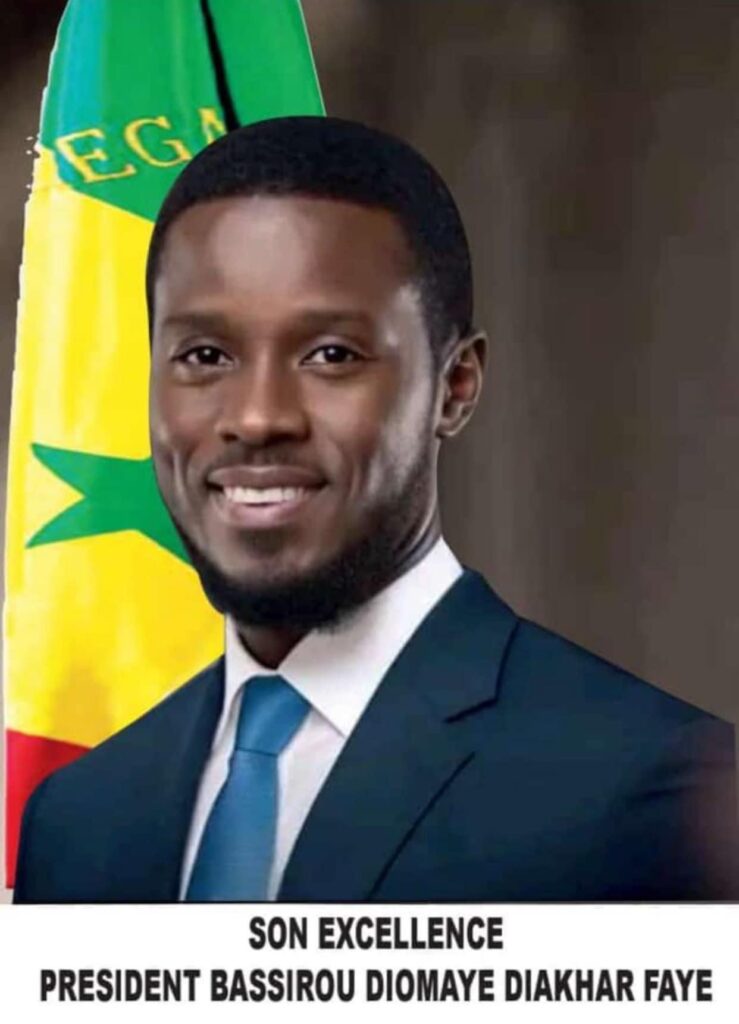Senegal Wakes Up To A Peaceful Revolution

By D. A. Jawo
Regardless of the final outcome of the results of the presidential elections held on Sunday, we are indeed witnessing a peaceful revolution in Senegal. What is happening there is a civilian version of what had recently happened in the three Ecowas rebel states of Mali, Burkina Faso and Niger, which is a backlash against the persistent French domination of Francophone Africa.
The dramatic way that the Sonko/Diomaye Faye tsunami has swept across Senegal, dismantling every traditional political view ever held in that country, showed the determination of the Senegalese people to effect change against any adversity.
What had happened in Senegal is yet another manifestation that it still remains a beacon of democracy in the sub-region and the political maturity of the Senegalese people. There is no doubt that the turmoil and political turbulence that Senegal had gone through in the past two years would have been enough to lead to chaos and even a military take over. However, the very fact that despite all the tensions, the Senegalese people exercised political maturity, leading to one of the most peaceful elections ever in that country, and ensured that they stuck to the political path rather than resort to illegal means to effect the changes that they had achieved through the ballot.
While most political analysts had predicted that due to the popularity of Ousmane Sonko, particularly among the young people, his Pastef party would perform well in any elections, but hardly anyone ever expected that his hand-picked candidate, Bassirou Diomaye Faye, who was quite an unknown quantity, would perform so well against all those veteran politicians, including Amadou Ba, who was backed by the power of incumbency.
Of course, political analysts have quite a task to explain in simple terms what led to this situation, but there are several factors, including political, economic and social.
The socio-political factors include the current wind of change sweeping across the sub-region, driven mainly by anti-French sentiments, mainly among the young people, who feel that they can no longer allow their countries to continue as bastions of French domination. Of course, Senegal and Cote d’Ivoire remain the most Francophile countries within the sub-region, and Pastef’s political leanings appear to counter a continuation of such a situation. Therefore, France would definitely not be quite happy with the trend shown by the election results.
On the economic front, like most other countries in the sub-region, Senegal had been going through hard economic times and as such, many of the people have been hard-hit and the young people, in particular, blame the government for those problems confronting them. This has led to many of them risking their lives in trying to reach Europe across the Sahara Desert and/or using rickety boats to cross the Mediterranean Sea, and as a result, many of them have died in the process.
Another problem that had apparently led to the present situation is the apparent vindictiveness of the Macky Sall government against his opponents. We have seen how he has frequently had problems with many of his opponents, resulting in many of them getting into trouble with his regime.
Therefore, the massive support for the Pastef candidate may have been triggered by such vindictiveness, seeing Sonko and his collaborators as being victims of President Sall’s high-handedness.
Of course, some of the actions by President Sall during the run-up to the elections, especially when he had to unceremoniously postpone the elections on the pretext that there were some problems in the screening of the candidates and that he wanted some of those who were disqualified, such as Karim Wade, to be given a chance, also had a big toll on whatever was left of his government’s popularity. That move was very unpopular both at home and the international community, and it was perceived by some of his opponents as a deliberate attempt for him to prolong his mandate through the back door, and eventually the Constitutional Council nullified it. He was therefore forced to reverse his position and compelled to fix a date acceptable to all.
Even though, due to the political maturity of the Senegalese people, unlike many other African countries, the ethnic factor is never quite prominent in their politics, but there were some traces of ethnic tendencies in some quarters. We have seen, for instance, that while Diomaye/Sonko performed extremely well in the Jola-dominated Casamance and the Serer-dominated Sine-Saloum area, while Amadou Ba performed quite well in the Fulani-dominated Futa Toro part of the country, but the results did not follow the ethnic pattern to a large extent as would have been the case in some other countries.
There is absolutely no doubt that even if Diomaye and Ba were to go for a second round, Diomaye is likely to easily win it, looking at the trend. Therefore, it is as good as over for Ba and his coalition.
The question, however, in the lips of many political analysts is what is going to happen to the relationship between President Bassirou Diomaye Faye and his protégé, Ousmane Sonko. Is Diomaye going to be his own man or is he going to be remote-controlled by Sonko? Of course, all indications are that both Diomaye and Sonko are novices in state-craft and it may not be smooth sailing for them in running the country. Therefore, their best bet should be to form an all-inclusive government rather than resort to vengeance and accountability for whatever they may have gone through under the Macky Sall regime. In such a scenario, it is Senegal that would benefit rather than any individual or interest group.

